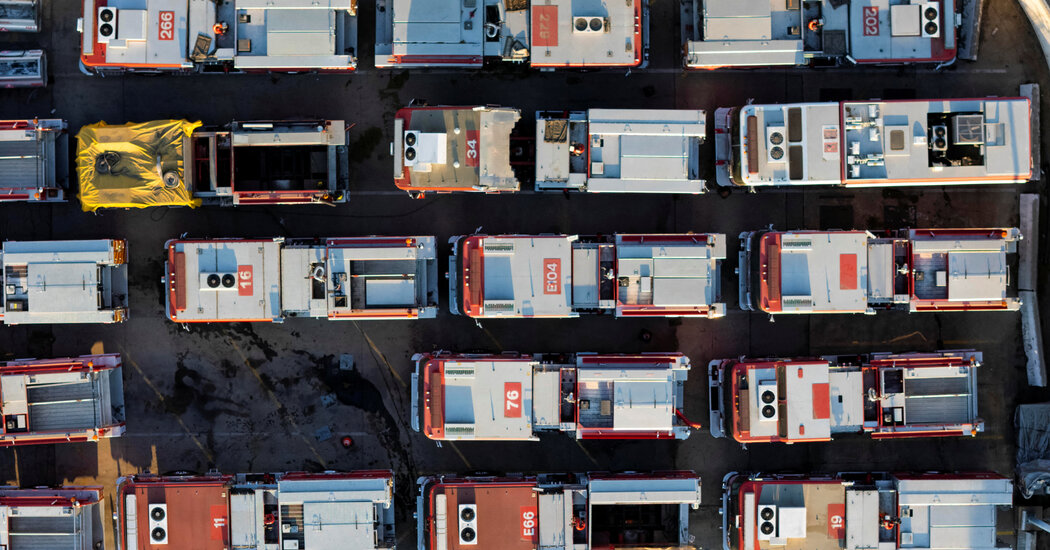As fire departments around the country report soaring prices and waiting times for new fire engines, two United States Senators are investigating the effect on public safety and the role that private equity investment has played in disrupting the firefighting equipment industry.
The senators — Elizabeth Warren, Democrat of Massachusetts, and Jim Banks, Republican of Indiana — reported on Tuesday that they had heard from dozens of fire departments about delayed deliveries, defective parts and escalating prices. In a letter to the International Association of Fire Fighters, they said they were concerned that “private equity is padding shareholders’ wallets at the expense of public safety” and that they were seeking to learn more about the situation.
Over the past two decades, the private equity firm American Industrial Partners has acquired a number of specialty vehicle companies, including fire truck manufacturers, and has combined them into a single company called Rev Group. Company executives told analysts that they would substantially raise profit margins and that other companies were doing the same. Rev Group closed two manufacturing plants to streamline its operations.
The New York Times reported earlier this year that prices for fire trucks have soared in recent years and that manufacturers are taking longer to deliver vehicles. Rev Group has said it has a backlog of $4 billion in orders.
Industry leaders have said that the delays and rising prices stemmed from disruptions brought on by the coronavirus pandemic, but some fire officials have blamed the problems at least partly on the industry’s consolidation.
Sue Finkam, the mayor of Carmel, Ind., said she raised the issue with Mr. Banks after she saw how quickly prices for new trucks were rising and how long they would take to be delivered. The estimated price of a new pumper vehicle rose about 10 percent in 2024 from the previous year, she said, while the wait time for a new tiller apparatus is now more than four years.
Ms. Finkam said her city was growing and needed to add more fire stations. But as matters stand now, she said, the city expects to be able to acquire land, design a fire station, construct the building, hire firefighters and train them, while still waiting for the station’s fire engines to be delivered. With the brunt of the pandemic now a few years in the past, she said, she hopes the senators will get answers about the soaring prices and delays.
“The taxpayers are going to be the ones shouldering the burden,” she said.
In Los Angeles, even before the wildfires that consumed whole neighborhoods earlier this year, the city fire department was struggling to maintain its aging fleet, and dozens of vehicles were out of service. Union officials said that rising prices for replacement vehicles had forced the department to order fewer new rigs than it had planned.
Ms. Warren said that the senators’ letter to the International Association of Fire Fighters was the first step in their investigation. She wants to encourage a broader congressional inquiry, and hopes that the Trump administration will get involved.
“Ultimately, when we don’t take care of our firefighters, we make it harder for our firefighters to take care of their communities,” Ms. Warren said in an interview.
Basel Musharbash, an antitrust lawyer who has done his own examination of fire truck manufacturing, said the consolidation in the industry had implications for public safety. But he said that similar private-equity roll-ups are reshaping many other sectors of the economy as well.
“What happened here is alarming and should hopefully attract a lot of attention, not just to the plight of fire departments but to the plight of lots of different industries that are dealing with private-equity-led consolidation,” Mr. Musharbash said.












Leave a Reply